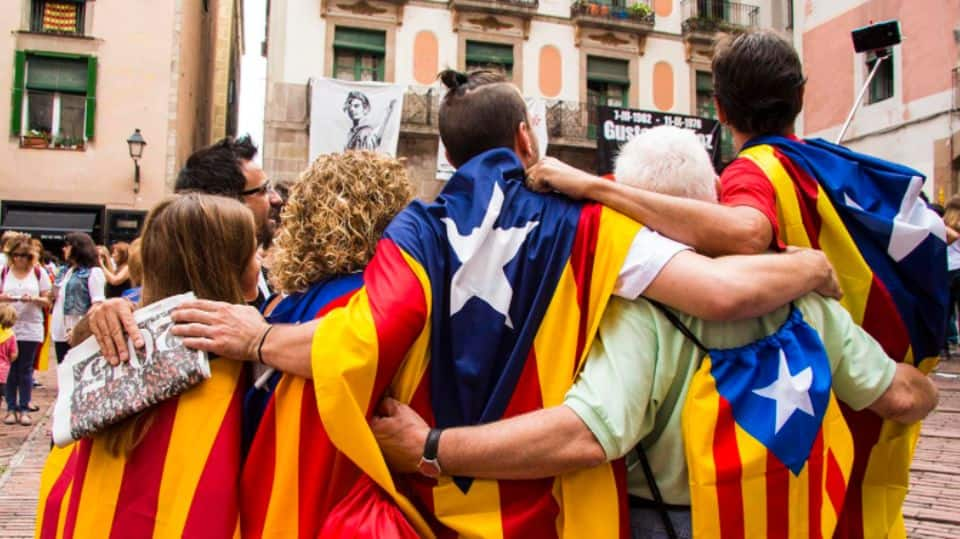
Catalonia elections: Pro-independence parties en route to victory
What's the story
According to media reports, Catalonia's pro-independence parties are on their way to winning a majority of seats in the region's parliament. This could mean that Spain might once again have to handle growing demands of independence from this north-eastern province. Madrid had earlier called for elections after dissolving the Catalan parliament for defying Spain and declaring independence. What's happening in the elections? Read on.
Do you know?
Where is Catalonia?
Catalonia is an area located in the north-east of Spain and is considered to be among its richest and most industrialized areas. With its capital in Barcelona, Catalonia has a distinct identity and language from Spain.
Background
What was the Catalan independence referendum?
On October 1, Catalan leaders held a referendum in defiance of Madrid to ascertain whether its population backed independence from Spain. 90% of 2.2 million voters, who amounted to 40% of Catalonia's population backed independence. Madrid deployed its police forces to forcibly prevent voting. The crackdown left 900 people injured. Numerous anti-Spain protests erupted afterward, with organizations including FC Barcelona backing Catalan independence.
27 Oct 2017
Catalan Parliament declares independence from Spain
On October 27, Catalonia's regional parliament voted in favor of independence from Spain, ahead of a Spanish Senate vote to seize Catalan's autonomous powers. Seventy Catalan lawmakers voted for independence while 10 opposed it. Opposition members walked out before the vote in protest. Earlier, Spanish PM Mariano Rajoy had said that direct rule was necessary to return "law, democracy, and stability" to Catalonia.
28 Oct 2017
Spanish PM dissolves Catalan parliament after independence declaration
On October 28, Spanish PM Mariano Rajoy dissolved the Catalan parliament after MPs voted to declare independence from Spain. Rajoy, had earlier warned Catalonia that Madrid would move to suspend the region's autonomy. He dismissed Catalan President Carles Puigdemont and his cabinet. The Catalan crisis had begun after its leaders defied a Constitutional Court ruling to hold an independence referendum.
Results
What do the election results indicate?
With counting almost concluded, Catalonia's pro-independence parties: Together for Catalonia (JxCat), Republican Left of Catalonia (ERC) and Popular Unity (CUP) are en route to winning about 70 out of 135 seats, giving them a clear majority. In a fit reply to Madrid for his ouster, Puigdemont's JxCat came first. Rajoy's Popular Party has won merely 3 seats, a decline from 11 seats in 2015-elections.
Quote
Ousted Catalan president: Catalonia has won, Spain is defeated
Speaking from Brussels, Puigdemont stated that "Spain had been defeated" and "Catalonia has won." He added that the situation called for "rectification, reparation and restitution." He had fled to Brussels after Spanish prosecutors slapped charges of sedition and rebellion against him and his colleagues.
Analysis
What next?
The pro-independence parties' strong comeback in the Catalan regional elections indicates that independence from Spain is something Catalans seek seriously. This means more trouble for Madrid which seems to be growing highly unpopular among Catalan citizens. The independence movement is more entrenched than ever and will likely go on to create major crises for Spain.